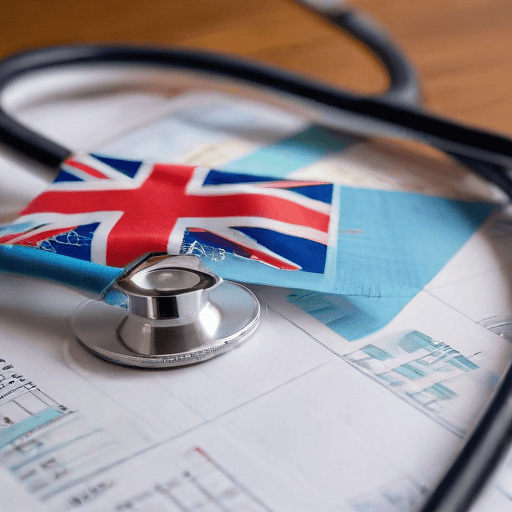The incidence of stroke in Fiji has surged dramatically over the past four decades, underscoring an urgent need for enhanced efforts to mitigate stroke risks. Alarmingly, the youngest recorded stroke patient in Fiji is only 12 years old, a concerning trend attributed largely to imbalances between work and life, along with unhealthy eating habits.
Globally, one in five individuals will suffer a stroke at some point in their lifetime, and a staggering 81% of those with cardiovascular diseases are at risk of experiencing a stroke. Stroke, also known as a cerebrovascular accident, stands as one of the leading causes of death and disability worldwide, presenting a significant public health challenge in Fiji.
Despite the growing incidence rates, Traditional Chinese Medicine (TCM), particularly acupuncture, emerges as a beacon of hope in stroke treatment and rehabilitation. Acupuncture has been practiced for thousands of years and is believed to aid in stroke recovery through various mechanisms.
Key mechanisms include:
1. Enhancing blood circulation to the brain to counteract inadequate blood flow.
2. Restoring balance in the body’s energy pathways to improve recovery of motor functions.
3. Activating the nervous system’s repair functions, which can facilitate nerve recovery.
At Vuda Traditional Chinese Medicine Clinic, Dr. Pai implements a unique, comprehensive “Three-Phase Integrated Acupuncture Therapy.” This personalized approach tailors treatments to the different stages of stroke recovery:
– In the acute phase, acupuncture aims to rouse the brain and mitigate aftereffects.
– During the recovery phase, scalp and neck acupuncture targets the restoration of speech, swallowing, and motor abilities.
– In the sequela phase, treatments are designed to enhance the quality of life by addressing long-term impairments.
A success story from the clinic highlights the therapy’s potential: a 40-year-old stroke patient who faced right-side paralysis, difficulty swallowing, and loss of speech saw significant recovery after two months of treatment, regaining key functions and independence.
While acupuncture offers considerable advantages during recovery, prevention remains crucial. Important lifestyle choices, including a well-balanced diet, regular exercise, and effective stress management, are vital in lowering stroke risks. Public health education in Fiji must be a priority, empowering individuals to understand stroke risks and seek timely medical intervention.
The Vuda Traditional Chinese Medicine Clinic encourages persons to seek early treatment, particularly within the first three months following a stroke. Early intervention is essential to enhance recovery outcomes and mitigate lasting effects.
For those interested in consultations or appointments, the clinic can be reached at their Lautoka location through phone or email.
In summary, though the rise in stroke cases presents serious challenges, innovative treatment methodologies such as acupuncture offer new pathways to recovery and inspire hope for many in Fiji. By fostering preventative measures, the community can work together to reduce the incidence of strokes and improve overall health outcomes.

Leave a comment